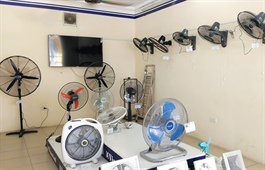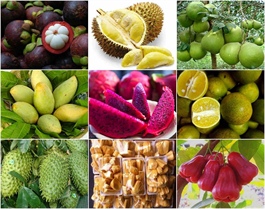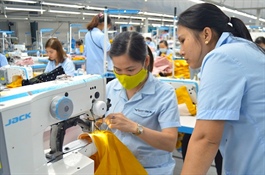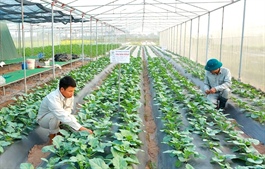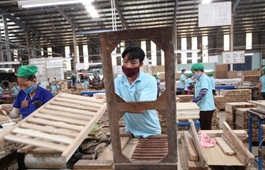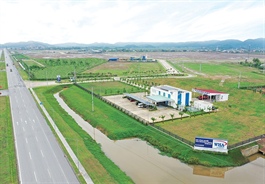Progress made in developing safe food distribution systems
Progress made in developing safe food distribution systems
The Ministry of Industry and Trade has been implementing activities to develop a safe food distribution system and manage safe food markets, contributing to the formation of supply chains between manufacturers and distributors and helping consumers access quality food.
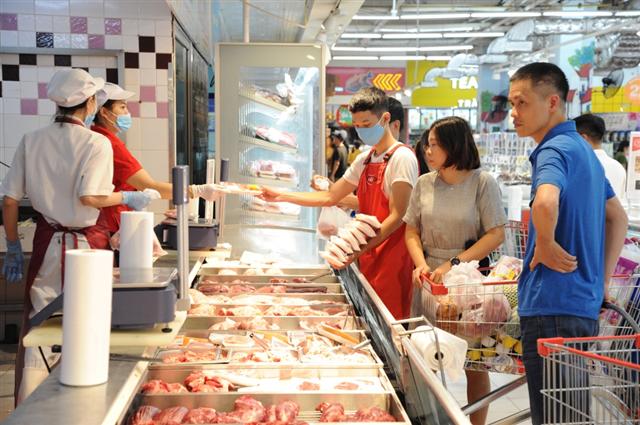
The demand for safe food is growing
|
Enhancing connection
According to Le Viet Nga, Deputy Director of the Domestic Market Department under the Ministry of Industry and Trade, the ministry has used the central budget to build 66 food safety markets in 62 provinces and cities. In addition, the ministry has built a modern safe food supply chain through large supermarkets and convenience stores.
These distribution systems have increased the market share of safe food supply to 30 percent, with food traceable to its origin and meeting high standards of food safety and hygiene. The ministry supports not only large enterprises and small and medium enterprises, but also ethnic minority household businesses in remote and isolated areas.
The Hanoi Department of Industry and Trade has also taken steps to connect safe food supply and demand. According to Tran Thi Phuong Lan, Deputy Director of the Hanoi Department of Industry and Trade, the connection is made through modern distribution channels as well as traditional business. Hanoi also connects product supply and demand of other cities and provinces. It has already linked 21 provinces and cities in the Red River Delta with some northern mountainous provinces to form 781 chains to meet the capital’s food safety needs.
While connected products must meet regulatory quality standards and ensure food safety, Vietnam’s safe food production base is still limited mainly to small household businesses, hampering the connection to distribution chains. The State has issued a decree and law on food safety, but implementation is hampered by inconsistent implementation, Lan said.
Improvements in the commercial infrastructure of traditional city markets have proven difficult until now due to limited investment capital, but starting in 2021 and until 2025, the Government will allow the use of state budgets to overhaul traditional city market infrastructure. Previously, this investment was only for rural or wholesale markets.
| The Ministry of Industry and Trade has eliminated a number of investment and business conditions in order to enhance autonomy and self-responsibility in production and business activities, but also has promoted communication, disseminated basic knowledge about food safety and legal provisions on food safety for thousands of food production and trading establishments. |







